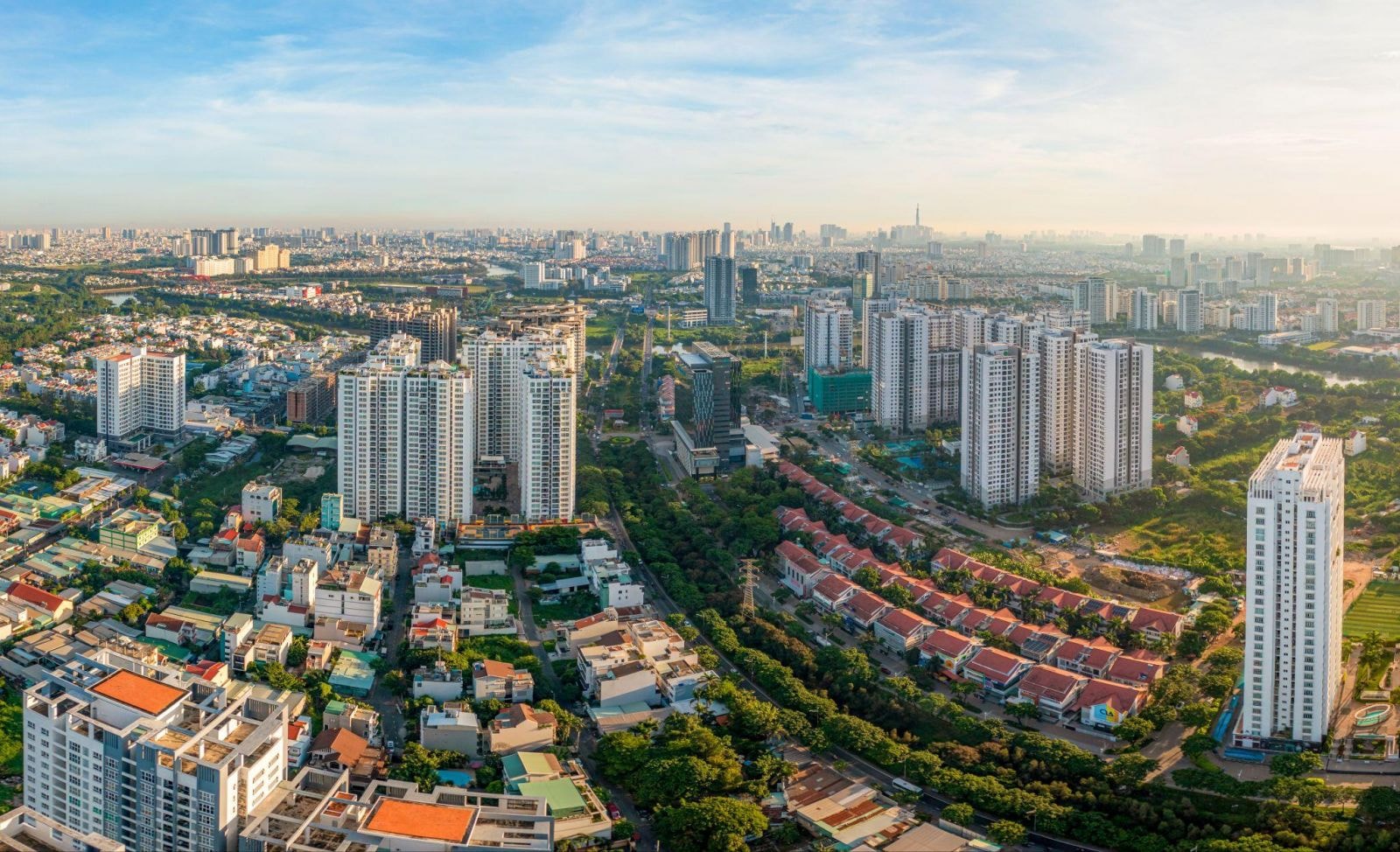Vietnam’s real estate market has shown a steady upward trend in prices across most property types over the past two years, despite economic fluctuations and seasonal factors. According to the latest report, land plot prices have surged by 44%, apartments by 42%, while individual houses, project land, and shophouses have increased by 28%, 14%, and 1%, respectively, during the same period.
Macroeconomic Factors Support Real Estate Market
The General Statistics Office (Ministry of Finance) reported that in the first eight months of 2025, Vietnam’s economy maintained positive growth momentum. Foreign direct investment (FDI) reached USD 26.14 billion, a 27.3% increase compared to the same period last year. International tourist arrivals totaled 13.9 million, up 21.7%, and total retail sales of goods and consumer services rose by 9.4%, estimated at VND 4,579 billion. These figures provide a solid foundation for the continued development of the real estate market.
Strong Recovery Among Real Estate Businesses
In the first eight months of 2025, Vietnam recorded 3,543 newly established real estate companies, a 12% increase compared to the previous year. Notably, 3,372 businesses resumed operations, reflecting an impressive 811% growth rate, signaling strong confidence in the market’s prospects. This indicates that the challenging “market cleansing” phase has passed, with surviving businesses demonstrating effective adaptation and restructuring.
Trends in Sale Prices and Rental Demand
Despite seasonal impacts in August 2025, the real estate market showed bright spots. Project land recorded the strongest growth, with a 40% increase in interest and a 17% rise in listings compared to August 2024. Meanwhile, apartments, individual houses, and land plots saw a slight 3-8% decline in interest but a 5-10% increase in listings.
Property sale prices continued to rise due to robust money supply driven by flexible monetary policies aimed at achieving high economic growth, prolonged shortages of primary supply in major urban areas, and investor confidence in future price appreciation. However, this poses challenges to housing affordability for low- and middle-income groups.
Additionally, in August 2025, the rental market saw a 4% increase in interest compared to July, primarily driven by a 45% surge in demand for rental rooms during the back-to-school season. In Hanoi, rental property interest grew by 12%, with boarding houses seeing a remarkable 100% increase in interest and a 36% rise in listings. In Ho Chi Minh City, boarding house interest also rose by 30%.
Outlook for Vietnam’s Real Estate Market in 2025
Vietnam’s real estate market in 2025 demonstrates strong recovery but requires synchronized solutions to balance investment opportunities with actual housing demand.
